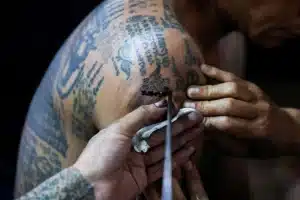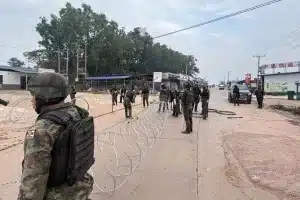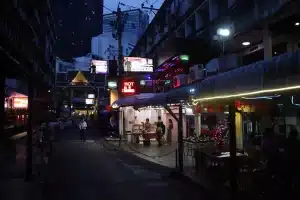Cat slaughterhouse shut down in Vietnam, 197 cats saved (video)

An industrial-scale cat slaughterhouse in the Dong Thap province of Vietnam, capable of slaughtering up to 500 innocent cats a day, has ceased all operations following landmark intervention from the authorities.
The slaughterhouse, which has been in business for more than a decade, has been subject to two police raids in recent weeks, during which its owners were found not to have the required paperwork. Over five tonnes of frozen cat meat was subsequently destroyed in front of the pleading owners, putting the unauthorised facility out of business.
The case has been hailed as a milestone moment for animal welfare in Vietnam by Soi Dog Foundation International, a Thailand-based animal welfare organisation who are fighting for an end to the dog and cat meat trade across Asia and is supporting the care of 197 cats rescued from the slaughterhouse.
“This is the first time we have seen an operation of this scale dealt with in this manner, and we are extremely pleased with the outcome,” said a spokesperson from the foundation. The cats found on-site are safe and receiving the urgent medical care they need. Though extremely distressed at first, 90% of the cats are now friendly and affectionate – and many are already sterilised – leading us to believe they are much-loved pets stolen to be sold into this barbaric trade.”
The now-defunct Dong Thap slaughterhouse could slaughter up to 500 cats a day using industrial machinery. A brutal end, their throats were cut, their bodies thrown into vats of boiling water and their coats removed using ‘defurring’ machines.
Described in the local press as “super thieves” and “pet killers,” the owners coordinated a steady supply of cats through their business, both stolen pets as well as free-roaming strays which they trapped using crude homemade snares. Some cats were slaughtered, frozen and then sold for medicinal use and consumption, while others were crammed into cages alive and shipped thousands of kilometres for sale and slaughter in northern Vietnam and China, where demand is much greater than in the South.
Repeat offenders, the owners had been fined by the authorities before. Undeterred and without remorse, they were ready to resume the slaughter and sale of cats just days later. However, with their supplies now destroyed and ongoing police surveillance in place, Soi Dog Foundation is confident that this recent intervention marks the end of their business once and for all.
Devastatingly, though, Dong Thap is only the tip of the iceberg when it comes to this trade in Vietnam, where the number of cats and dogs slaughtered every year is believed to run into the millions.
“Fuelled by the successful outcome in this case, we will continue to fight for the creation of a legal framework so that similar operations can be targeted and cats and dogs are no longer subjected to this unimaginable cruelty anywhere in the country,” said Soi Dog Foundation’s spokesperson.
“2023 has been declared the Year of the Cat in Vietnam, with cats hailed as symbols of protection and good luck. It is time they were treated accordingly.”
The foundation successfully put an end to the dog and cat meat trade in Thailand in 2014 and is working with the Hanoi Department of Animal Health to achieve the same in the Vietnamese capital and beyond. With the consumption of cats growing increasingly popular in Vietnam, and the methods of slaughter unimaginably cruel, the foundation is determined to raise awareness of the trade and help introduce robust legislation to shut it down.
Aside from the cruelty involved, the dog and cat meat trade is also thought to be contributing towards the spread of rabies in Vietnam. Despite funds allocated towards eradicating the disease by 2030, the situation within the country is only worsening according to recent news reports.
A Soi Dog Foundation spokesperson said…
“As long as the dog and cat meat trade continues, it will be impossible for Vietnam to become rabies-free. Stolen from outside loving homes and the streets before being transported in terrible conditions and slaughtered in plain view of one another using the crudest methods – each point of the trade involves close contact between humans and these extremely scared animals and therefore possible exposure to this fatal disease.”
Latest Thailand News
Follow The Thaiger on Google News:


























